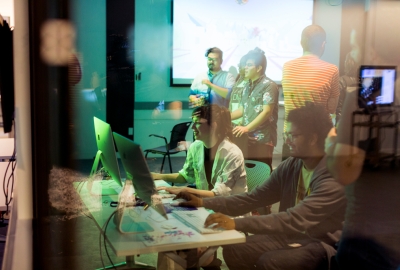Musical Theatre Dance is designed to bridge the gap between all dance styles used on Broadway, and to enrich and improve students’ vocabulary and movement skill set. Focuses on expression through movement, accuracy of movement execution, and the stamina building required of musical theatre performers when dancing, acting, and singing at the same time. Daily dance warm-up, including stretching, center-work, and cardio, followed by across-the-floor progressions, and a different style dance combination at center each week.
Course #
MPAVP-GE 2127
Credits
1
Department
Music and Performing Arts Professions


